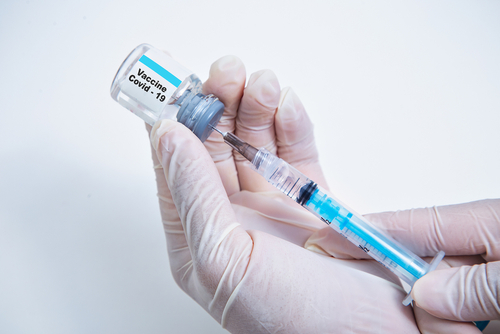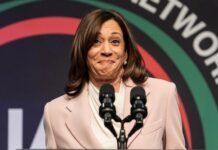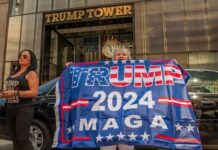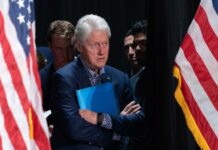
The integrity of the Food and Drug Administration (FDA) has come under scrutiny following revelations that two former officials, instrumental in approving Moderna’s COVID-19 vaccine, transitioned to high-paying roles at the pharmaceutical company shortly after the vaccine’s approval. This raises serious concerns about potential conflicts of interest and the impartiality of the FDA’s decision-making process.
Dr. Doran Fink, who held a leadership position at the FDA and played a key role in the approval of Moderna’s vaccine, left his government post to join Moderna just two months later. Similarly, Dr. Jaya Goswami, who served as a Medical Officer for the FDA, moved to Moderna in the same month she left the agency. Both had been involved in the review and approval of Moderna’s vaccine while at the FDA.
Dr. McCullough👉 Our FDA, NIH, CDC Officials now work in the private sector👇
Former FDA Chairman Scott Gottlieb is now on the board of Pfizer.
Former FDA Commissioner Stephen Hahn joined Moderna.
Dr. Rick Bright suppressed HCQ then joined the Rockefeller foundation. pic.twitter.com/xbGFo3oazY
— 🇺🇸Will🇺🇸 (@notBilly) January 4, 2023
At the FDA, Dr. Fink held the position of lead medical officer in the Office of Vaccines Research and Review. He was part of the team that authorized the Pfizer-BioNTech and Moderna mRNA shots. After leaving the FDA, he took up a six-figure job at Moderna as Head of Translational Medicine and Early Clinical Development within the department of infectious diseases.
Dr. Goswami, on the other hand, had broad oversight over vaccines and biologics clinical development during her tenure at the FDA. She was responsible for evaluating whether clinical data produced by Moderna regarding its two-dose Covid shot met the agency’s regulatory standards for approval. Upon leaving the FDA, she joined Moderna as Director of Clinical Development in treatments and vaccines for infectious diseases.
Every mainstream news organization shares at least one board member with at least one pharmaceutical company, the pharmaceutical industry accounts for 75% of TV ad spending, the last 2 FDA commissioners now work for Pfizer and a subsidiary of Moderna, 75% of the FDA’s drug…
— Daniel “Alec” Zeck (@Alec_Zeck) May 7, 2023
While the FDA has rules in place requiring employees to wait one year before lobbying or communicating with their former agency on behalf of anyone seeking official action, the lack of record-keeping on employee transitions makes it difficult to enforce these rules. This has allowed individuals like Dr. Fink and Dr. Goswami to slip through the cracks, raising questions about the effectiveness of these safeguards.
This issue is not unique to the FDA or the COVID-19 pandemic. A 2016 report found that over a quarter of FDA officials who reviewed cancer and hematology drugs for approval left their federal oversight posts to work for the industry they previously regulated. This revolving door culture between public service and private sector employment raises serious ethical concerns.
The FDA has defended its practices, stating that it has more enhanced ethics restrictions than most other federal agencies. However, the recent revelations have led to calls for stronger safeguards to prevent potential conflicts of interest and ensure impartiality in decision-making processes.
The transition of government employees to higher-paying private-sector jobs is not limited to the FDA. A study conducted by researchers at the University of Southern California and Harvard University reported that between 2004 and 2020, 54 percent of workers at the Centers for Disease Control and Prevention who left the agency for another job moved into the private health sector where workers can get higher salaries.
In conclusion, while the FDA maintains that it takes its obligation to prevent conflicts of interest seriously, the recent revelations suggest that there is room for improvement. Stricter enforcement of existing rules and the implementation of additional safeguards may be necessary to ensure the integrity of the FDA’s decision-making process and maintain public trust in its actions.












